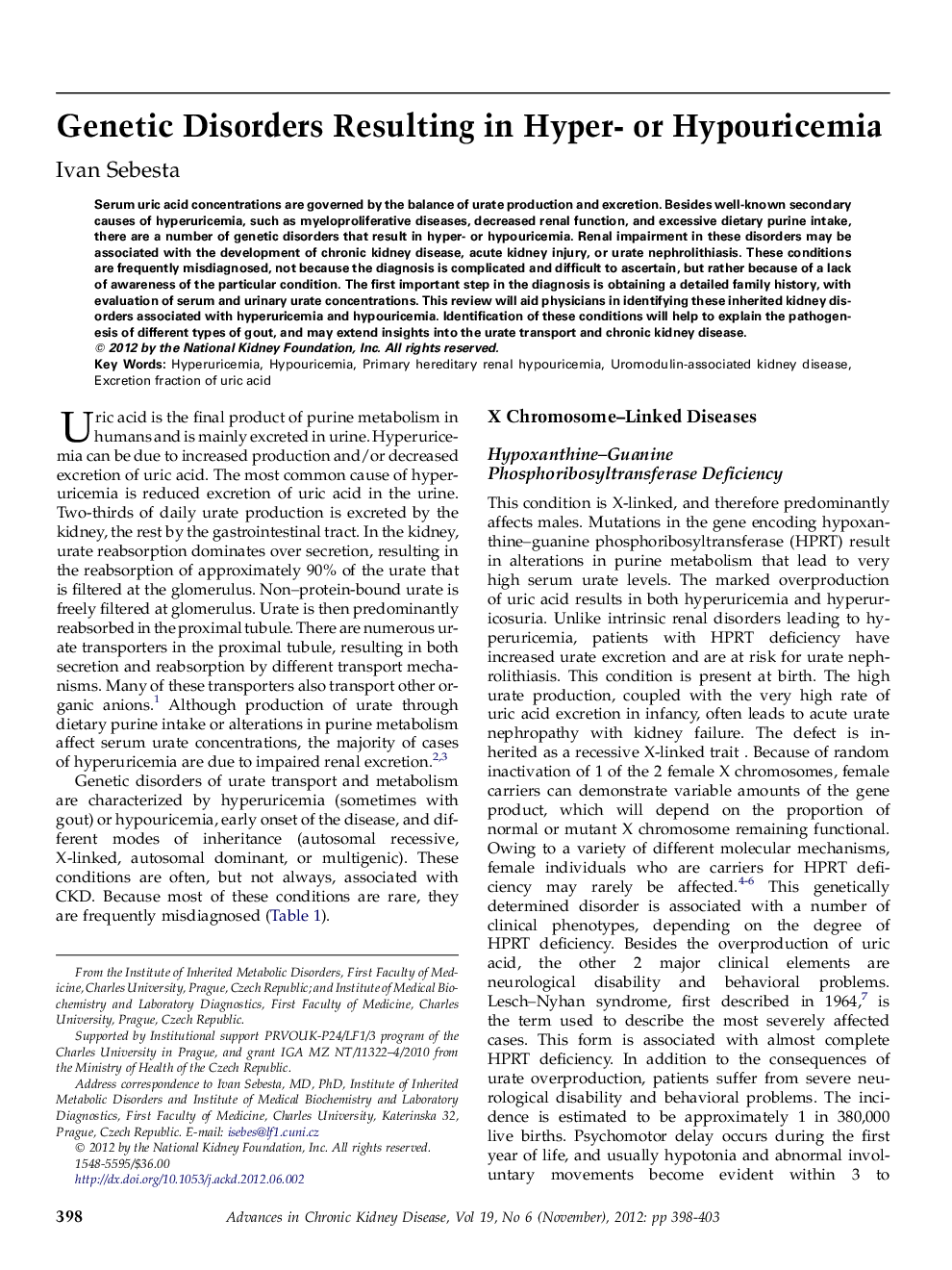| کد مقاله | کد نشریه | سال انتشار | مقاله انگلیسی | نسخه تمام متن |
|---|---|---|---|---|
| 3846689 | 1248338 | 2012 | 6 صفحه PDF | دانلود رایگان |
عنوان انگلیسی مقاله ISI
Genetic Disorders Resulting in Hyper- or Hypouricemia
دانلود مقاله + سفارش ترجمه
دانلود مقاله ISI انگلیسی
رایگان برای ایرانیان
موضوعات مرتبط
علوم پزشکی و سلامت
پزشکی و دندانپزشکی
بیماریهای کلیوی
پیش نمایش صفحه اول مقاله

چکیده انگلیسی
Serum uric acid concentrations are governed by the balance of urate production and excretion. Besides well-known secondary causes of hyperuricemia, such as myeloproliferative diseases, decreased renal function, and excessive dietary purine intake, there are a number of genetic disorders that result in hyper- or hypouricemia. Renal impairment in these disorders may be associated with the development of chronic kidney disease, acute kidney injury, or urate nephrolithiasis. These conditions are frequently misdiagnosed, not because the diagnosis is complicated and difficult to ascertain, but rather because of a lack of awareness of the particular condition. The first important step in the diagnosis is obtaining a detailed family history, with evaluation of serum and urinary urate concentrations. This review will aid physicians in identifying these inherited kidney disorders associated with hyperuricemia and hypouricemia. Identification of these conditions will help to explain the pathogenesis of different types of gout, and may extend insights into the urate transport and chronic kidney disease.
ناشر
Database: Elsevier - ScienceDirect (ساینس دایرکت)
Journal: Advances in Chronic Kidney Disease - Volume 19, Issue 6, November 2012, Pages 398-403
Journal: Advances in Chronic Kidney Disease - Volume 19, Issue 6, November 2012, Pages 398-403
نویسندگان
Ivan Sebesta,